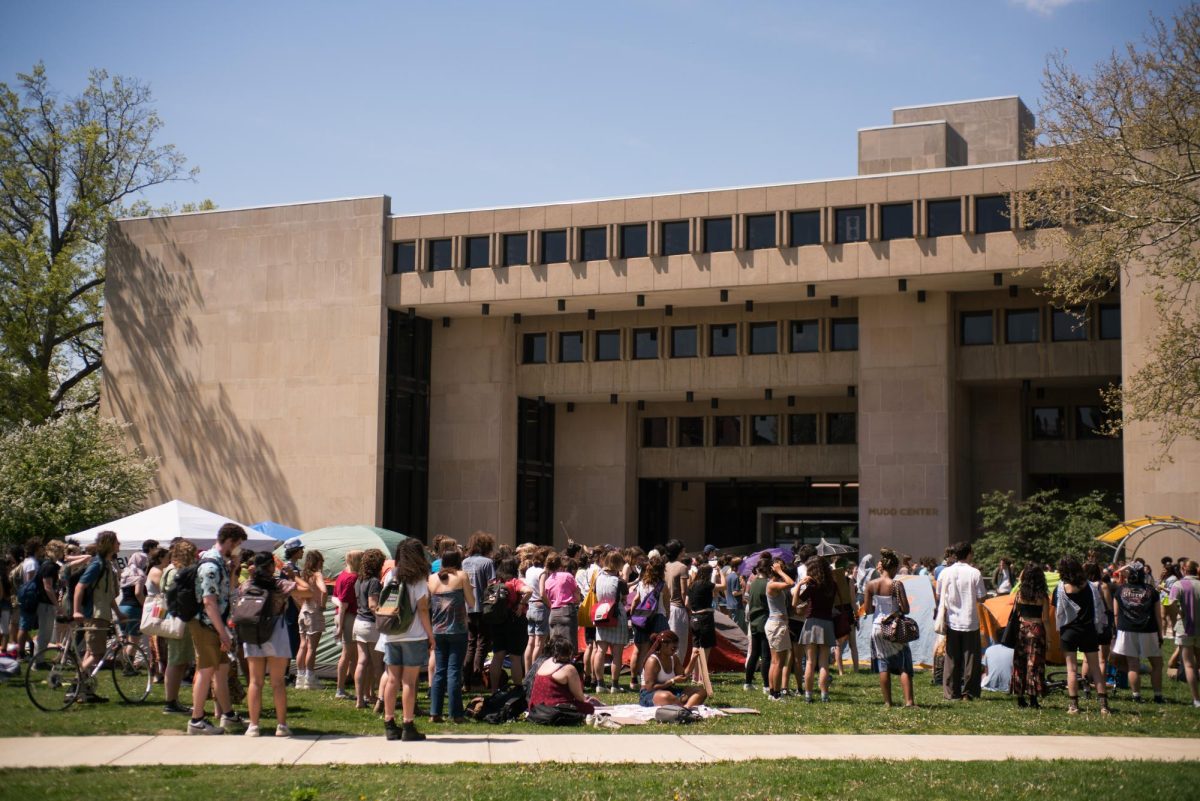I still remember my first Halloweekend at Oberlin. My friends and I had just left Organ Pump, and outside stood someone I knew. I saw her there, alone and clearly disoriented, standing at the steps of Finney Chapel. We hugged each other, and I invited her to hang out with my friends and I. We watched movies together in the Fairchild House lounge, snacking on popcorn and chatting until suddenly she became very sleepy and eventually threw up. At this point, it was one in the morning, and we decided it was time to turn in for the night; however, there was one problem: she lived all the way in Barrows Hall. Armed with nothing but a thin jacket, shorts, and slippers, my friends and I braved the cold night air in order to deliver my obviously ill friend back to her dorm. Halfway through the walk, I encountered another problem: my fingers and toes going numb from cold exposure. We frantically tried to enter any of the surrounding buildings, but the only place where I could recover was in a dorm lobby. Afterward, we got her to her dorm, able to open the door to her building ourselves, and made sure she made it up to her room and safely into her bed.
Under the new proposed curfew policy, none of this would have been possible. I would have had to force my friend to sleep on the couch, or even on the floor, of a dorm she was largely unfamiliar with. I also would have been unable to take that break in the dorm on the way, risking my safety in order to make it across campus.
For those that are unaware, a proposal has recently been presented to the student body to limit swipe access for dorms that you do not live in. This proposal would limit access to other dorms between 10 p.m. and 7 a.m. This policy was proposed as an attempt to make campus safer, but I think it would end up doing the exact opposite.
This proposal would effectively close the few remaining third places students have on campus. I and many others have written about the lack of third places here, and after midnight on weekdays and 1 a.m. on weekends, there are no easily accessible indoor gathering places for students besides dorm lounges. Without access to these spaces, students would have no places to gather after certain hours, which severely restricts the social lives of students. This can also lead to an increase in disruptions, as having people over would require a resident to open the door multiple times through the course of the night, potentially crossing through residential areas during quiet hours. I know I am not the only person who has been disturbed by a late night gaggle of revelers shouting in the hallways as they enter and exit the building, and forcing hosts to make multiple trips through residential areas during quiet hours would increase the instances of this happening.
Beyond this, many dorms host events that occur at night. For example, Afrikan Heritage House hosts events on Friday nights called Soul Session. The event is like a talent showcase open to both residents of the house and those who live in other areas around campus. These events are a great way for Black students to gather and show off their talents, but it starts at 9:30 p.m. most nights. Because of the late start time and the drop-in nature of the events, students who want to participate may be unable to attend because they live in other dorms or Village Housing. I know Afrikan Heritage House is far from the only dorm that hosts events in lounge spaces, and restricting the mobility of students after 10 p.m. would severely limit who could attend these events.
There are also concerns about safety. We recently had a tornado warning that required students to take shelter. Under these restrictions, if a tornado or other natural disaster were to strike during restricted hours, students who are far from their dorms or houses may be at the mercy of the elements. Dorm lobbies can also serve as a good place to escape the cold during the harsh winter months, so limiting access could mean that students who are sensitive to extreme temperatures — like myself — would be forced to brave the cold during the coldest hours of the day in order to make it back to their own dorms. Not to mention that if there were a threatening individual on campus who was not a student, students would be unable to hide in a dorm that is not their own.
I know other schools use restrictive policies like this to make their campuses safer, but in most of those cases, the schools are significantly larger than Oberlin — hosting tens of thousands of students — or are in the middle of larger cities. It makes more sense for those schools to restrict dorm access to residents, seeing as there are more nearby or even on-campus threats to the health and safety of the student body, but Oberlin is not like this. Oberlin is a small residential college far away from major metropolitan areas. Beyond this, in the hypothetical where a student on campus represents a danger to another student, that student in particular can be barred from entering the residence of their victim, rather than everyone’s access being limited to other dorm buildings.
Widespread restriction on student mobility would do nothing to help the student body. In my opinion, the proposal is completely out of touch with the wants, needs, and concerns of the student body at large. Instituting the proposal would only serve to isolate and endanger us by restricting our access to safe spaces on campus.












